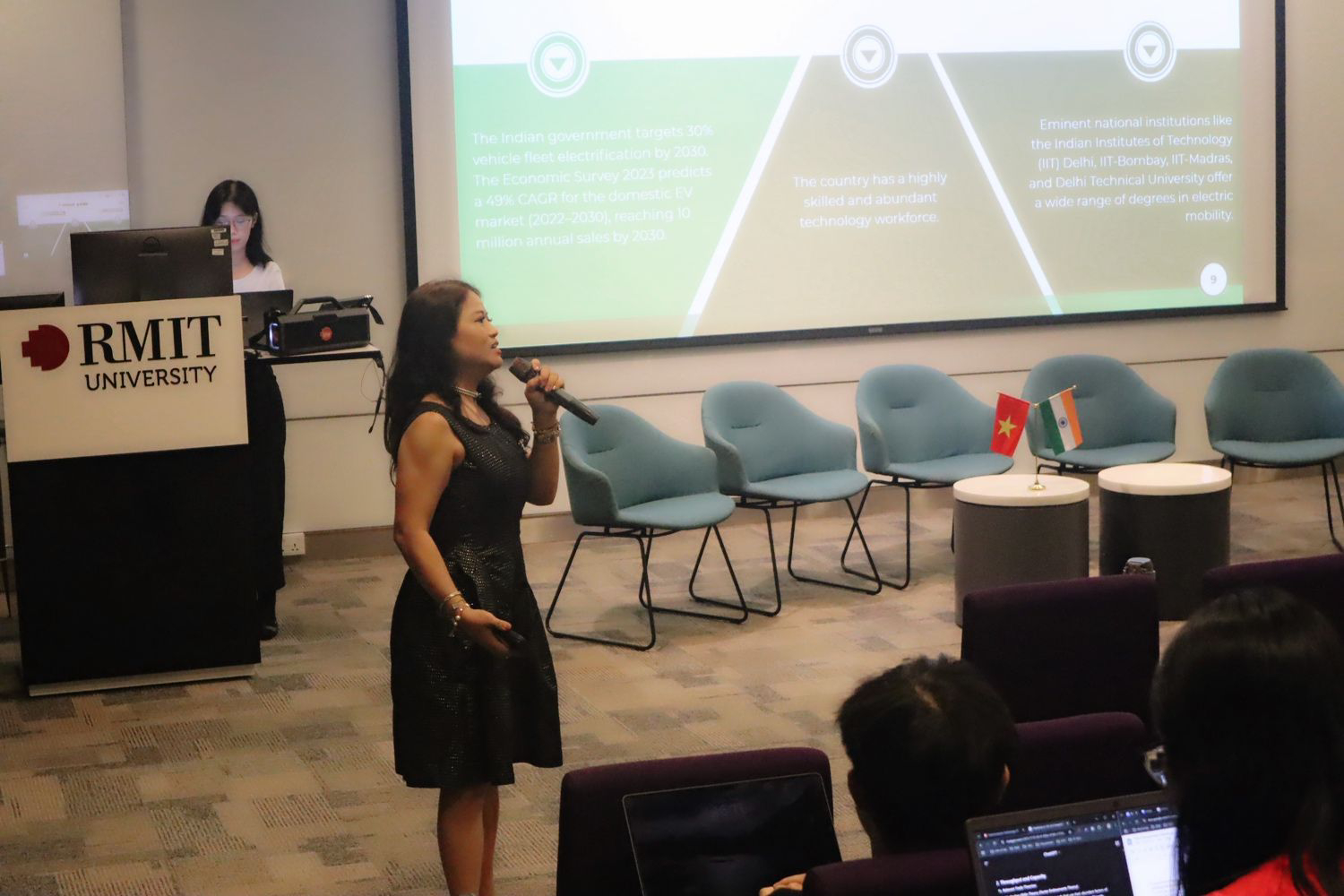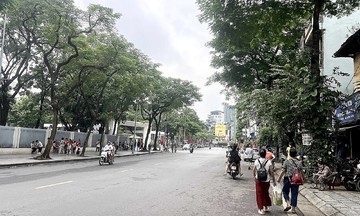"Many friends ask why I don't return south, but I see plenty of opportunities in Hanoi. The salaries are comparable to Ho Chi Minh City, so there's no reason to go back," says 27-year-old Thao, originally from Ho Chi Minh City.
As a final-year international relations student, Thao worked remotely for a Hanoi-based AI startup. After graduating in 2020, she was offered a full-time position in the north. Three years later, Thao left that job but stayed in Hanoi, joining another tech company.
"The income in Hanoi is quite good. I rent my own apartment in a central district, mostly eat out, and use ride-hailing services, yet I still save over 60% of my salary," Thao says.
The trend of "heading north for better opportunities" isn't limited to young people. Vo Doan Trinh, with over 20 years of experience in supply chain management in Ho Chi Minh City, also decided to move to Hanoi in mid-2024 when offered a purchasing manager position at an electric vehicle company.
"A 30% salary increase was a strong motivator. Moreover, I saw it as a chance to test my resilience in a new field and experience the northern market," she says.
 |
Bich Thao enjoys Hanoi pho and hot fritters on an early summer morning in the Old Quarter. Photo courtesy of the subject |
Bich Thao enjoys Hanoi pho and hot fritters on an early summer morning in the Old Quarter. Photo courtesy of the subject
A few years ago, "career migration" almost exclusively meant a flow of workers from the north to Ho Chi Minh City and the southern provinces. In the last two years, this flow has begun to shift. Increasingly, young professionals and mid-to-senior level staff are moving from the south to Hanoi and other northern economic centers in search of new opportunities.
While official statistics are lacking, many human resources experts confirm this noticeable trend. After Covid-19, the two economic hubs recovered at different paces. The southern economic model, heavily reliant on labor-intensive industries like textiles and footwear, was significantly impacted by global supply chain disruptions. The north transitioned more quickly to high-tech, electronics, and logistics, attracting more sustainable foreign direct investment (FDI).
"This isn't a mass exodus, but a rebalancing of the workforce. It's a combination of a saturated southern labor market and the pull of job opportunities in new industrial centers in the north," says Dam Thu Trang, CEO of recruiting firm TalentsAll.
With over 10 years in mid-to-senior level recruitment, Trang notes that northern companies, previously focused on local talent, are now actively seeking candidates from the south. "Recently, my company successfully placed a marketing and technology sales director from Ho Chi Minh City with a northern company," Trang says.
Nguyen Thi Quynh Phuong, director of human resources solutions at Talentnet, also confirms this shift, observing an increase in southern applicants. Conversely, some northern conglomerates are expanding their recruitment nationwide, particularly in fields like communications, marketing, manufacturing, and supply chain management. They offer competitive salaries and relocation assistance.
"The demand for specialists demonstrates the strong investment commitment of northern businesses," she says.
From a broader perspective, Tran Anh Tuan, a workforce forecasting expert and vice president of the Ho Chi Minh City Vocational Education Association, emphasizes that provincial mergers will create more extensive development opportunities for both workers and employers.
"With 34 provinces, each administrative unit integrates ecosystems ranging from industry, commerce, agriculture, and logistics to services, technology, finance, and the maritime economy. This creates sustainable development zones, offering workers more choices for settling down and building careers," he says.
Another factor mentioned by experts is the "desire for change and challenge" among Gen Z. This demographic is known for its high mobility, love of experience, and openness to new work environments. This contributes to the trend of working from anywhere.
Bich Thao considers herself an early "migratory bird" to Hanoi. Initially, every motorbike taxi ride to work brought the question: "Why are you working in the north?". Lately, however, Thao hears more southern accents in the capital's offices. "My company has several colleagues from the south. Two of my university friends also live and work here," she shares.
Gen Z individuals like Thao view relocation not just as a career move, but as part of a journey of discovery. "A 'chill' Hanoi, blended with ancient charm, as portrayed on TikTok and Threads, brought me here," she says.
Despite initial concerns about regional differences, Thao says she has always felt welcome. Having lived in six central districts, she has become a true Hanoian. "Some days, I eat purely northern dishes like water spinach salad with pickled star fruit and tofu with scallions," she shares.
 |
Doan Trinh shares her procurement experience at a university in 5/2025. Photo courtesy of the subject |
Doan Trinh shares her procurement experience at a university in 5/2025. Photo courtesy of the subject
However, experts note that differences in work style, lifestyle, and climate can affect long-term employee retention. "Ho Chi Minh City remains a dynamic market with many opportunities, suitable for young people who enjoy challenges," Dam Thu Trang observes. "The sustainability of the northward migration trend requires further observation."
Vo Doan Trinh's story is a case in point. The southern job market was tight, with stagnant salaries. C-level executives like Trinh faced greater difficulty finding work. "When I joined the company, there were two other C-level staff from the south," she says.
Trinh stayed the longest of the three. The others left after a few weeks or two months. But she only lasted eight months. In 2/2025, she had to resign and return south.
With her health now stable, Trinh is looking for a new job. When asked about returning north, she enthusiastically replies: "If the opportunity arises, why not?".
For Bich Thao, Hanoi has become a second home. Five years of living and working there have brought personal growth and financial security. She is considering returning south for a master's degree and to spend time with her aging parents.
"I might return to the north after finishing my studies," she says. "Especially if, in the future, high-speed rail or other modes of transport eliminate the distance barrier."
Phan Duong












